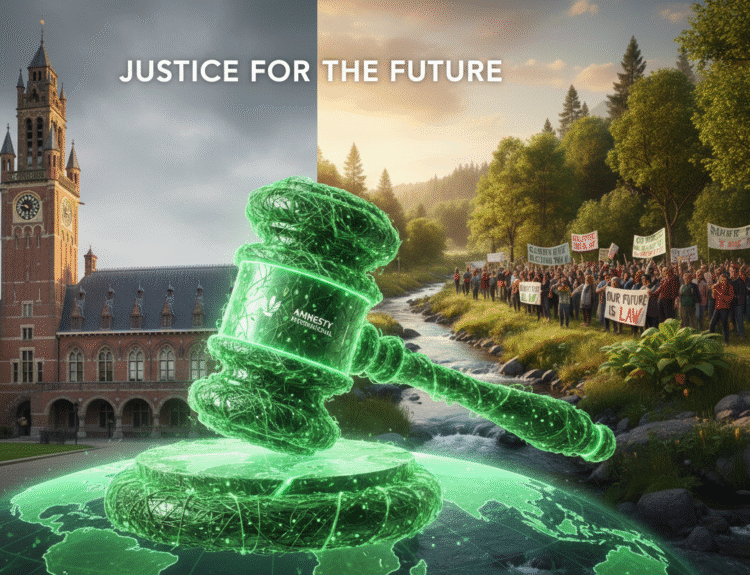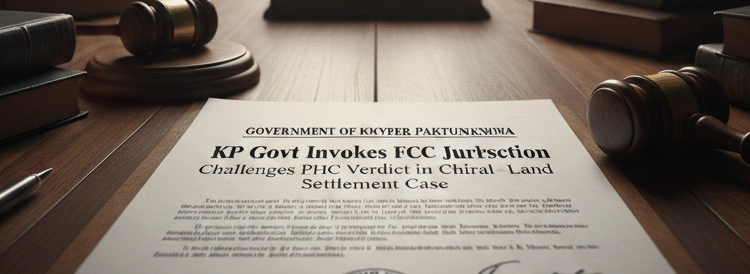Khudayar Mohla – While announcing a 43-page verdict in suo motu over religio-political parties sit-in at Faizabad Interchange during November 2017 the Supreme Court issued directives to federal and provincial governments to prosecute elements advocating hate, extremism and terrorism in the country.
Daily life in Islamabad was disrupted for 20 days (from Oct 2 to Nov 27, 2017) when protesters belonging to religiopolitical parties ─ including the Threek-e-Labik Pakistan (TLP), Tehreek-i-Labbaik Ya Rasool Allah (TLYRA), Tehreek-i-Khatm-i-Nabuwwat, and the Pakistan Sunni Tehreek ─ occupied the Faizabad Interchange which connects Rawalpindi and Islamabad through the Islamabad Expressway and Murree Road, both of which are the busiest roads in the twin cities.
In November 2017, the top court had taken suo motu notice of the three-week long sit-in, which was held against a change in the finality-of-Prophethood oath, termed by the government as a clerical error, when the government passed the Elections Act 2017. The sit-in was called off after the protesters reached an agreement with the government. On November 22, 2018 a two-judge bench of the apex court comprising Justice Musheer Alam and Justice Qazi Faez Isa had reserved verdict in the matter.
Announcing the reserved verdict on Wednesday, the two-member bench of the Supreme Court said, “We direct the Federal and provincial governments to monitor those advocating hate, extremism and terrorism and prosecute the perpetrators in accordance with the law”.
Stated in the verdict that the Constitution emphatically prohibits members of the Armed Forces from engaging in any kind of political activity, which includes supporting a political party, faction or individual.
Issuing directives to government in the matter the Supreme Court said, “The Government of Pakistan through the Ministry of Defence and the respective Chiefs of the Army, the Navy and the Air Force are directed to initiate action against the personnel under their command who are found to have violated their oath”.
The Supreme Court informed that Election Commission of Pakistan has disclosed in its response in the matter that a resident of the United Arab Emirates, holding a National Identity Card for Overseas Pakistanis (NICOP) represented TLP before the Commission and attended to all its matters and secured TLP’s registration as a political party.
The verdict said that all political parties have to account for the source of their funds in accordance with the law, adding the State must always act impartially and fairly. It said that the law is applicable to all, including those who are in government and institutions must act independently of those in government.
“The Constitution earmarks the responsibilities of the Election Commission which it must fulfill. If a political party does not comply with the law governing political parties then the Election Commission must proceed against it in accordance with the law. The law is most certainly not cosmetic as contended on behalf of the Election Commission”, the verdict said.
The Supreme Court ruled when the State failed to prosecute those at the highest echelons of government who were responsible for the murder and attempted murder of peaceful citizens on the streets of Karachi on 12th May, 2007 it set a bad precedent and encouraged others to resort to violence to achieve their agendas.
“A person issuing an edict or fatwa, which harms another or puts another in harm’s way, must be criminally prosecuted under the Pakistan Penal Code, the Anti-Terrorism Act, 1997 and/or the Prevention of Electronic Crimes Act, 2016”, stated in the verdict.
The Supreme Court said that the right to assemble and protest is circumscribed only to the extent that it infringes on the fundamental rights of others, including their right to free movement and to hold and enjoy property, adding protestors who obstruct people’s right to use roads and damage or destroy property must be proceeded against in accordance with the law and held accountable.
When asking PEMRA to take action against broadcasters over violation of PEMRA Ordinance the Supreme Court said, “Broadcasters who broadcast messages advocating or inciting the commission of an offence violate the PEMRA Ordinance and the terms of their licences and must be proceeded against by PEMRA in accordance with the law”.
Likewise, the Supreme Court said in its verdict about cable operators, “Cable operators who stopped or interrupted the broadcast of licenced broadcasters must be proceeded against by PEMRA in accordance with the PEMRA Ordinance, and if this was done on the behest of others then PEMRA should report those so directing the cable operators to the concerned authorities”.
The verdict said that those spreading messages through electronic means which advocate or incite the commission of an offence are liable to be prosecuted under the Prevention of Electronic Crimes Act, 2016.
It has also been ruled in the verdict, “All intelligence agencies (including ISI, IB and MI) and the ISPR must not exceed their respective mandates. They cannot curtail the freedom of speech and expression and do not have the authority to interfere with broadcasts and publications, in the management of broadcasters/publishers and in the distribution of newspapers”.
The Verdict further said, “Intelligence agencies should monitor activities of all those who threaten the territorial integrity of the country and all those who undermine the security of the people and the State by resorting to or inciting violence – To best ensure transparency and the rule of law it would be appropriate to enact laws which clearly stipulate the respective mandates of the intelligence agencies”.
According to the verdict, the police and other law enforcement agencies have been directed to develop standard plans and procedure with regard to how best to handle rallies, protests and dharnas, and ensure that such plans/procedures are flexible enough to attend to different situations.
“It is clarified that though the making of such plans/procedures is not within the jurisdiction of this Court however we expect that in the maintenance of law and order every effort will be taken to avoid causing injury and loss of life”, stated in the verdict.
The bench asked its office to send copies of the 43-page judgment for information and compliance to the government through the Cabinet Secretary, Secretary Defence,
Secretary Interior, Secretary Human Rights, Secretary Religious Affairs and Interfaith Harmony, Secretary Information, the Chief Secretaries of the provinces, the Election Commission of Pakistan, the Pakistan Electronic Media Regulatory Authority, the Pakistan Telecommunication Authority and the Chief Commissioner of Islamabad.
Besides, the Secretary Defence has been directed to forward the judgment to the heads of the Armed Forces, the Director General Inter-Services Intelligence, the Director General Inter-Services Public Relations and the head of the Military Intelligence.
Secretary Interior has been directed to forward the judgment to the Director General Intelligence Bureau, Director General Federal Investigation Agency, Inspector Generals of Police of the provinces and the Islamabad Capital Territory.
Secretary Information has been directed to forward the judgment to the directors of all press and information departments, who in turn are directed to forward it to all newspapers published in their territories. Pakistan Electronic Media Regulatory Authority is directed to forward this judgment to all television channels and all its licenced broadcasters and operators.
———————————————————————————————————
Categories
Courts




